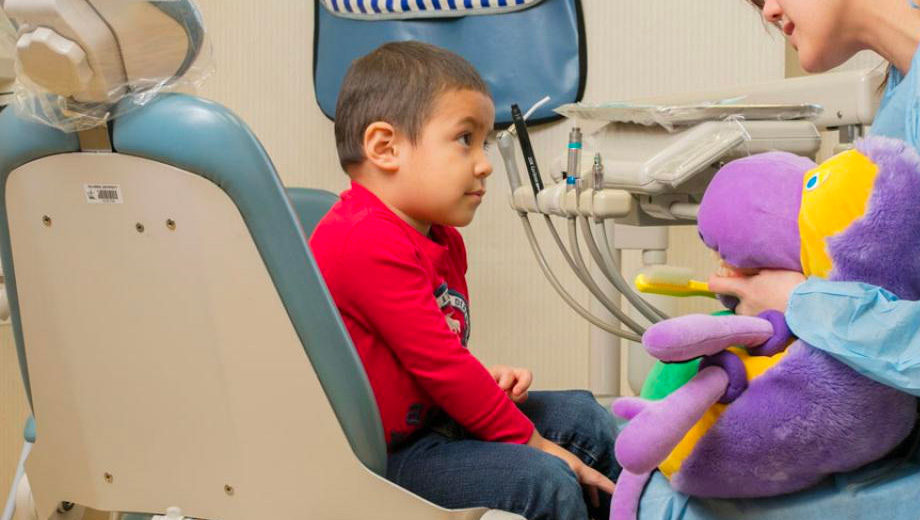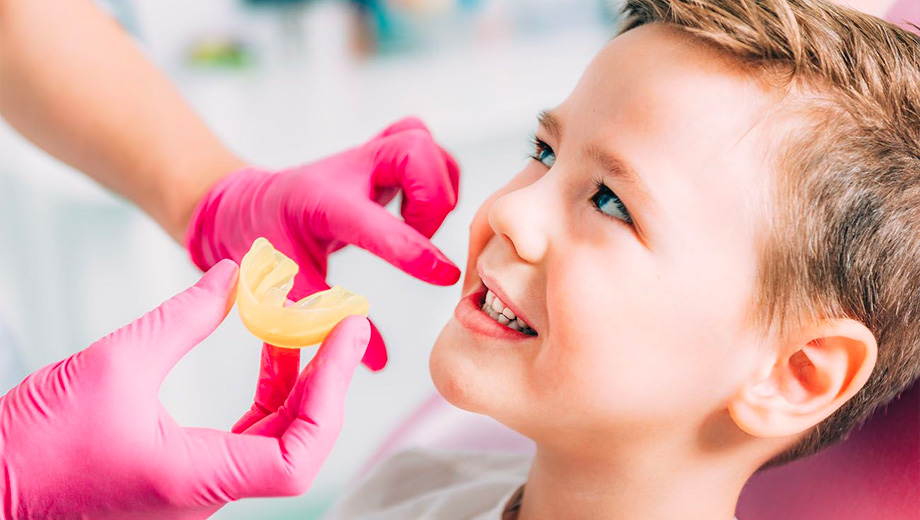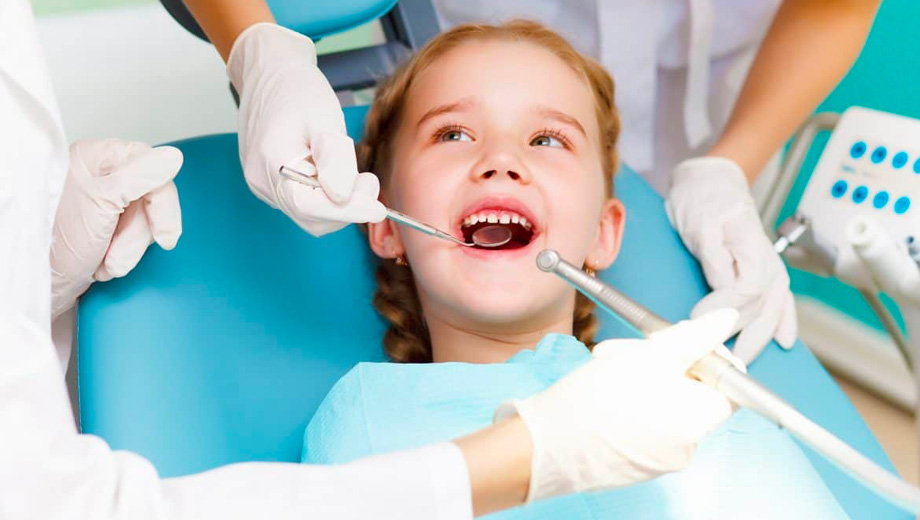Emergency Pediatric Dentist in Katy
Here at Kids Healthy Teeth, we will happily help you through your dental emergencies; However, please review these common dental emergencies to assess the need for an
on-call dentist. If you still need to speak with the dentist on-call, please call the office and
follow the prompts.
You should read along to learn more about what to do during urgent matters and dental emergencies.
Toothaches: Start by cleaning around the affected tooth. Prepare a simple saltwater solution with warm water to rinse your mouth, or you could also use dental floss to dislodge any food particles that may play a part in perpetuating the toothache.
If there’s still any sensation of pain following these recommendations, contact your child’s dentist. Additionally, if you notice any swelling around the affected area, apply cold compresses and get in touch with a pediatric dentist or emergency center as soon as possible.
Cut or Bitten Tongue, Lip, or Cheek: Use a cold compress or apply ice over the injured area to help control any swelling. If you notice any bleeding, apply firm pressure with some gauze or a clean cloth. Don’t remove the gauze or cloth constantly to avoid restarting the bleeding. If the bleeding doesn’t stop, call a doctor or go to an emergency room.

Knocked-Out Permanent Tooth: This one is, understandably, very alarming. Try to locate the tooth and avoid handling it from the root as much as possible. AVOID using any soap or scrubbing it to clean it. Transport the tooth, submerging it in milk. Contact a dentist IMMEDIATELY and get professional help; TIME IS OF THE ESSENCE.
Knocked-Out Baby Tooth: We understand that this is scary, but this is not usually
an emergency. Baby teeth are NEVER re-implanted! Put the tooth under the pillow for the tooth fairy and turn this accident into a fun visit from the tooth fairy! Follow-up with the pediatric dentist during regular business hours.
Chipped or Fractured Permanent Tooth: Contact your pediatric dentist, and she can help determine if immediate treatment is needed. Rinse the mouth and any other affected areas with clean water and apply ice to soft tissues to reduce swelling; with sufficient time, a pediatric dentist can save the tooth, prevent infection, and heavily reduce the need for extensive restorative treatments.
Chipped or Fractured Baby Tooth: You can try to get in touch with your kids’ dentist back during business hours, but the first thing to do is let your child calm down after the traumatic incident and try to assess the extent of the chip or fracture. In some cases, your kid won’t even need any treatment, but it will be your kids’ dentist who can determine when and if your kid needs to come to be seen in the office and deal with any potential infection as soon as possible.
Severe Blow to the Head: This is a potentially life-threatening emergency; go to the emergency room as soon as possible!
Possible Broken or Fractured Jaw: Help your kid avoid moving their jaw any longer until they receive professional medical help in an emergency room.
Dental Radiographs (X-Rays)
X-Rays are essential to perform correct dental diagnostics. Without them, we risk missing important details.
Radiographs are useful beyond the detection of dental cavities. X-rays are required to survey erupting permanent teeth, diagnose bone diseases, evaluate the severity of previous injuries, and eventually plan orthodontic treatment. These resources enable pediatric dentists to diagnose and treat dental health conditions that escape initial clinical examinations.

Identifying oral health complications early in their development increases treatment effectiveness, makes the experience much more comfortable for the kids, and affordable to you.
The American Academy of Pediatric Dentistry (AAPD) recommends we evaluate your child’s dental health status at least every six months to avoid the risk of tooth decay.
Dental X-rays are prescribed by the dentist based on chronological age, dental age, and cavity risk.
You’ll know you are dealing with the best pediatric dentist in Katy because they are careful to minimize patient radiation exposure. Using modern technology makes the entire process much safer. Besides, you can rest assured that the amount of radiation received during these examinations is minimal.
Make sure to ask the dentist and the staff about what measures are in place to help minimize risk to your child.
What’s the Best Toothpaste for My Child?
Helping your child brush their teeth is crucial if you want to help them maintain good oral health. Your choice of toothpaste is equally important. Look for products approved and recommended by the American Dental Association (ADA).
The AAPD recommends using fluoridated toothpaste as soon as the first tooth erupts. For children under 3, a ‘smear’ or “grain-of-rice” size is recommended. For children 3 years and older, a “pea-sized” amount is recommended.
Does Your Child Grind His Teeth At Night? (Bruxism)
Bruxism, commonly known as the nocturnal grinding of teeth, has always been a concern for parents. The early signs can be seen on your child’s teeth getting shorter or dentition’s worn. Sometimes you can even hear the child grinding their teeth when sleeping.
In most cases, stress is the main reason any life-changing circumstances surrounding your kid can be of influence. As for physical ailments, inner ear pressure can also be a cause, for example, during a flight’s take-off and/or landing, and it can be noticed when the infant will grind his/her teeth by moving their jaw in order to alleviate the tension.
Most pediatric bruxism cases don’t require treatment, as your child might outgrow this condition. The grinding usually stops around ages 9-12; however, if you suspect the condition continues, discuss it with a pediatrician or pediatric dentist.
Thumb Sucking
Sucking is a natural reflex for infants and young children. Most commonly, infants will use their thumbs, fingers, pacifiers, or other objects they can get their hands on. For some kids, it may even become a coping mechanism during difficult moments.
However, thumb sucking persisting beyond age 3 can cause problems with tooth alignment and jaw development. All this depends on individual variations. The idea is to guide them to cease the habit by age 3 to avoid permanent dental defects.
Consult a pediatric dentist about phasing off the habit and if you have any questions about the right use of a pacifier.
A few suggestions to help your child get through thumb sucking:
- Instead of scolding children for thumb sucking, praise them when they are not doing it (positive reinforcement).
- Children often suck their thumbs when feeling insecure. Focus on correcting the cause of anxiety instead of the thumb sucking.
- A positive-reinforcement approach might help a lot. Try rewarding children when they stop sucking on their thumb. Just be careful not to overdo it. School-aged children will often respond well to a reward chart.
- Your pediatric dentist can encourage children to stop sucking and explain what could happen if they continue.
You could try other approaches blocking the child from reaching their thumbs. You could put a sock over their hands at night, or bandage their thumb. Your pediatric dentist in Katy may recommend the use of a mouth appliance.

